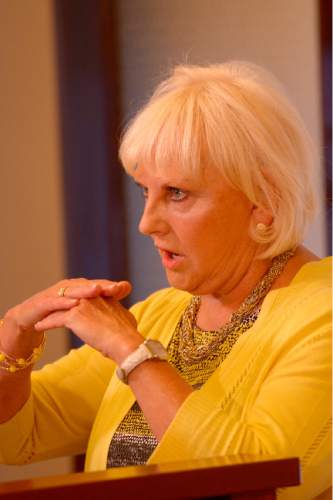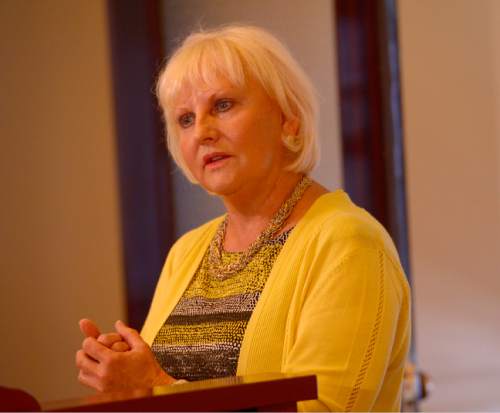This is an archived article that was published on sltrib.com in 2015, and information in the article may be outdated. It is provided only for personal research purposes and may not be reprinted.
A stable funding source — free from the budgetary whims of the Legislature — is the best way to solve high turnover, low morale and a host of other problems that plague Utah's state-owned liquor stores, a state senator said Wednesday.
Sen. Karen Mayne, D-West Valley City, unveiled proposed legislation that would set the annual state budget of the Utah Department of Alcoholic Beverage Control (DABC) at 13 percent of gross liquor store revenue.
If that level of funding were approved in the current fiscal year, it would add at least $3 million to the DABC coffers, Mayne said.
Right now, the DABC operates on an amount equal to 10 to 11 percent of sales revenue, she said. But that can change every year, because state law requires the DABC to return all its profits to the state, and the Legislature sets the department budget.
"This would add stability," Mayne said, "so they know how to run the business."
Her proposal would require the DABC to use the additional funding to:
• Raise the minimum salary of part-time employees to at least $12 an hour.
• Increase the number of full-time employees to 60 percent.
• Provide a 5 percent raise to all employees for the 2016-17 fiscal year.
• Provide training to employees on how to recognize overconsumption.
• Offer employee training on alcohol products, and provide a salary bonus to those who participate.
• Supply sufficient security for stores.
The additional funding should help the DABC keep up with growing liquor sales. Last year, sales jumped more than $28.7 million to nearly $396 million, or 7.8 percent, from the previous year. Despite the record profits, lawmakers pared the DABC's operating budget by $500,000.
The department has been trying to make the cut in various ways, but namely through employee attrition. In many cases, there is now one liquor store manager overseeing two stores, a setup that has affected the already-low employee morale.
In addition to the budget bill, Mayne said she also plans to introduce a second measure that would create a DABC advocate position that employees, customers and liquor vendors could contact with their complaints, without fear of retribution.
"With this," she said, "we would have transparency and open government."
With both proposals, Mayne said, she hopes to start a discussion that is long overdue among her mostly Mormon colleagues, most of whom eschew alcohol for religious reasons.
"It's about running these stores efficiently," she said. "If we're not willing to do that, we should get out of the business."





